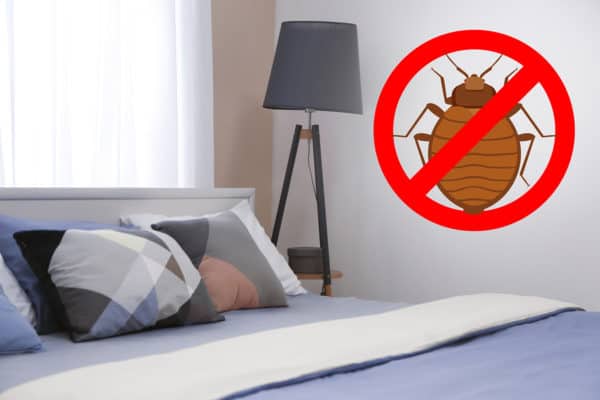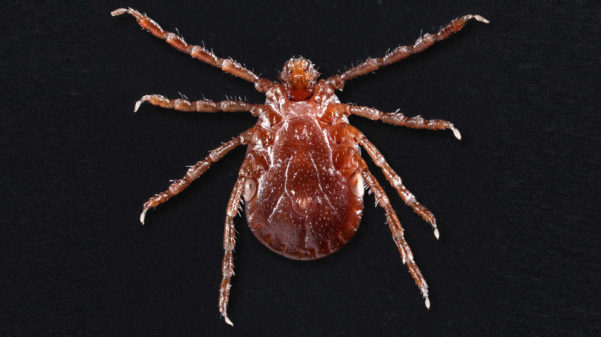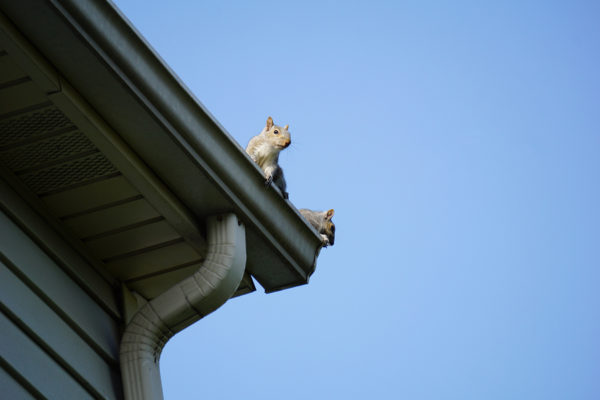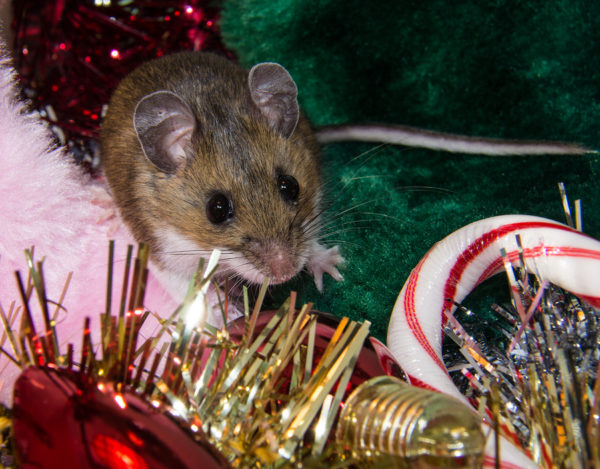READY TO GET STARTED?
REQUEST A FREE ESTIMATE
Fill out the form below or call (888) 466-7849 for a free, no-obligation estimate.

With the increase in travel during the upcoming Spring Break season, the incidence of bed bugs will be on the rise. Bed bugs are difficult to get rid of; notorious hitchhikers that can travel with ease from place to place. They also don’t discriminate – bed bugs have been reported in accommodations ranging from 1 star motels to 5 star luxury resorts and everywhere in between, and have been reported around the world. Most home bed bug infestations occur after travel or are brought in by guests. So what can you do to make sure these pests don’t arrive uninvited after your spring break travels?
There are several resources out there that provide reports of bed bug infestations at hotels and other lodging facilities. The Bed Bug Registry is a free public database of user-submitted bed bug reports from across the United States, Canada, and the United Kingdom. Established in 2006, the Bed Bug Registry has mapped more than 12,000 hotels based on over 20,000 reports from travelers. Other user-generated sites like TripAdvisor also offer reviews that include bed bug reports.
Bed bugs are small, only about 4 to 5 mm in size. They are the size of a standard pearl. They have flat, oval-shaped bodies that are red or brown in color. Before traveling, download the EPA’s wallet-sized bed bug identification card for reference.
Where do you look for bed bugs? Bed bugs are excellent hiders. They are nocturnal so finding them during the day can be a challenge. Always check your room thoroughly before unloading your luggage. Bed bugs are usually found within 20 feet of a host (usually a bed). Bed bugs are commonly found in the seams of mattresses, in the cracks of headboards, in baseboards, and in the folds of upholstered furniture. They can also be found in drawers and closets and even in the fabric of luggage rack straps. Be sure to check each of these places thoroughly and use a flashlight if possible. Leave your luggage outside the door while you check for bed bugs. Be sure to also check the sheets and mattress for small brown spots sometimes tinged with blood. This is a tell-tale sign of a bed bug problem.
If you find evidence of bed bugs in your room, notify the front desk and hotel manager immediately. Request to be transferred to another room that is not above, below, or adjacent to the infested room as bed bugs can travel through cracks in the ceiling, walls, and floor. If you aren’t comfortable, request a refund and find other accommodations. Request that the hotel launder your clothes immediately. Place all your garments in a sealed bag and put them in the dryer again when you get home. Steam your luggage, as well.
One way to avoid bed bugs is to take steps to prevent them in the first place. Pack a large trash bag with your luggage and store your luggage in it while in the room. Don’t leave any clothes, purses, or computer bags on upholstered furniture in your room. Keep all bags closed when not in use. Double check your bags and clothing before you repack. Once you return home, immediately unpack your dirty clothes directly into the washer and then dry them on high heat. Store your suitcases away from any living areas such as in the garage or the basement.
Bed bugs can be extremely difficult to get rid of. If you suspect you have a bed bug problem, contact a professional pest control company who can provide you with a thorough inspection and the appropriate treatment plan for your situation.
What Attracts Cockroaches To A Clean House?
Is Your Hotel On The Bed Bug Registry?
A Step-By-Step Guide To Spring Lawn Care
So You Think You Have Bed Bugs: Now What?
What Are Your Termite Treatment Options?

For the first time in fifty years, the U.S. has its first known invasive tick.
The longhorned tick, first discovered in November 2017, has been found in New York, Pennsylvania, Maryland, Virginia, West Virginia, North Carolina, and Arkansas. Professionals have had unsuccessful attempts to exterminate this particular species, leading it to be classified as an invasive species.
Normally an animal-attracted pest, the longhorned tick has been known to carry and transmit diseases like Lyme, spotted fever, and Severe Fever with Thrombocytopenia (SFTS). SFTS symptoms include fever, vomiting, multiple organ failure, along with many other symptoms. Fortunately, of the ticks tested here in the U.S., no human diseases have been detected.
As always, use the normal precautions towards tick exposure:
Continuing to follow these precautions will help to prevent tick exposure for you and your family members.
How Much Does a Termite Inspection Cost?
Pest Control for Basements and Attics
Wildlife Control: What Threat do Rodents Pose to Humans?
Exterminating: Rain and the Bugs it Brings?
Termite Treatment: Termites vs Flying Ants

The winter months can bring wildlife indoors as they search for food and shelter from the cold weather, causing property damage by chewing through the wood, insulation, and wiring in your home, and can also carry diseases that threaten the health of you and your family. What critters should you be concerned about? Most wildlife control services include the exclusion, removal, and control of animals such as squirrels, rodents, raccoons, snakes, bees, and birds. Safe removal of the nuisance critter is always the first priority when it comes to wildlife, but what can you do to prevent these animals from getting into your home or property to begin with? Keep reading for tips on wildlife prevention and bird control.
If you suspect a wildlife problem, contact a professional wildlife control company. A wildlife removal expert will inspect your home to identify the animal nuisance, determine where they are getting in, remove them, and prevent the wildlife from getting into your home in the future. They can also inform you of any existing damage or contamination and provide you with a recommendation for repairs or clean-up.
You May Also Be Interested In:
Lawn Care: 7 Tips For A Healthy Winter Lawn
What Is Green Pest Control?
Termite Control: Do I Really Need Termite Protection?
Pest Control: Mosquitoes In The South
Exterminating Tips: Keeping Out Winter Pests

The holiday season is upon us with decorations, food, and traveling to see family and friends. While most of us are focused on our holiday preparations, we often lose focus on another important aspect of this time of year – pest prevention. Just because it’s cold outside doesn’t mean pests aren’t a problem. The holidays provide many opportunities for spiders, ticks, ants, mice, bed bugs, and other pests to make their way indoors and take over your home.
One of the most common ways pests can get into your home during the holidays is on live Christmas trees, wreaths, and firewood. Ants, spiders, ticks, and other pests can hide deep in the branches of trees and in the crevices of wood. They can even lay their eggs in trees or garland which can hatch once you put them out in your home, potentially causing a major infestation.
Pests can also access your home in those boxes of decorations you drag out from the attic, basement, garage, or crawlspace. Mice and other pests love to get into those cardboard boxes during the off season. You may be in for a surprise when you open your decorations by finding a live pest, droppings, or even damage to your lights and ornaments. It is especially important to check the wiring of your lights to make sure pests haven’t chewed through them.
The holidays are also one of the busiest travel times of the year. Most of us will either travel to visit loved ones or have loved ones travel to visit us. While we’re usually excited to see everyone, we’re not so excited to deal with bed bugs which often hitch rides on the luggage of these travelers. We often see a spike in bed bug cases during the holiday season.
So what can you do to pest proof your home and make sure you don’t get any unwanted guests for the holidays?

No matter what season it is, pests will always be in search of 2 things: shelter and food. One place that provides both of these is your home! Pests are influenced by the seasons so their threats change as the weather changes. Different seasons bring different pests in varying stages of their life cycles. It is important to know seasonal pest patterns for your area to make the proper preparations for your home. What can you expect as each season changes throughout the year?
Winter is a time of hibernation and survival for pests. Colder weather triggers a need for most pests to find shelter; some seek shelter outdoors while others will seek shelter indoors. Bees, wasps, and other stinging insects will seek out places in logs or in the eaves of your home. Ants will seek shelter in their nesting sites. Overwintering pests like cockroaches, spiders, and rodents will seek shelter indoors, sometimes in our homes. The key to prevention of winter pests is to prepare your home in the fall.
Spring is a time of awakening and mating for most pests. As the weather warms, pests will emerge from their winter shelters and increase their activity. Pests that hibernate over winter will awaken from their dormant states. The spring rains will drive ants from their nesting sites in search of higher ground. Spring also marks the beginning of swarming season for termites. Most pests will move outdoors in the spring in search of mates.
Summer brings the height of backyard pests that put a damper on our outdoor fun. While we tend to see fewer pests inside our homes, we do tend to see larger numbers of pests in our yards and other outdoor areas. Mosquitoes are especially active in the summer months because of the moisture from spring and summer rains. Bees, wasps, and other stinging insects are also more active in the summer; their nests can often be found on our near our homes.
Fall is a time of preparation for most pests as they get ready for the harsh winter months. Common fall pests include ladybugs, box elders, and spiders. These pests will often invade your home at this time of the year in search of shelter for the coming months. Fall is a good time to prepare your home for those overwintering pests seeking shelter from the winter weather also, like cockroaches and rodents.
No matter the season, there are steps you can take to protect your home from pests year-round:
If these steps aren’t enough or if you already have a pest problem, call a pest control professional who can come and give your home a thorough inspection and help you with a treatment and prevention plan.